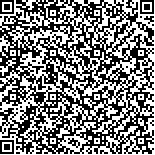|
| 引用本文: | 赵雪琳,郑小东,孙同秋,钱耀森,柯巧珍,邱兆星,李 琪.黄河三角洲河蚬(Corbicula fluminea)的繁殖生物学研究.海洋与湖沼,2012,43(5):1008-1015. |
| |
|
| |
|
|
| 本文已被:浏览 2612次 下载 3089次 |

码上扫一扫! |
|
|
| 黄河三角洲河蚬(Corbicula fluminea)的繁殖生物学研究 |
|
赵雪琳1, 郑小东1, 孙同秋2, 钱耀森1, 柯巧珍1, 邱兆星3, 李 琪1
|
|
1.中国海洋大学水产学院;2.滨州市海洋与渔业研究所;3.山东省海水养殖研究所
|
|
| 摘要: |
| 自2009年2月—2010年1月, 共采集黄河三角洲流域分布的河蚬498个, 采用组织学方法分析其性腺的年周期变化, 利用考马斯亮蓝方法进行了蛋白质含量的年周期测量。结果表明, 黄河三角洲分布的河蚬雌雄异体, 性比为1 : 1, 性腺发育分为6个时期: 增殖期、生长期、成熟期、排放期、恢复期和排尽休止期。配子发生期开始于2月份, 一年内有两个繁殖高峰期, 分别为每年的6月中旬和10月上旬。蛋白质含量无性别差异, 闭壳肌和外套膜的蛋白质含量全年都处于较低水平, 无明显波动, 性腺-内脏团和足的蛋白质含量相对较高, 并分别在5月份和5、8月份达到峰值, 与河蚬的繁殖盛期显著相关。 |
| 关键词: 河蚬, 生殖周期, 性腺发育, 蛋白质 |
| DOI:10.11693/hyhz201205019019 |
| 分类号: |
| 基金项目:国家科技支撑计划课题(2010BAC68B01); 2009年滨州市科技发展计划(200936) |
| 附件 |
|
| THE REPRODUCTIVE BIOLOGY OF CORBICULA FLUMINEA FROM THE YELLOW RIVER DELTA |
|
ZHAO Xue-Lin1, ZHENG Xiao-Dong1, SUN Tong-Qiu2, QIAN Yao-Sen1, KE Qiao-Zhen1, QIU Zhao-Xing3, LI Qi1
|
|
1.Fisheries College, Ocean University of China;2.Binzhou Ocean & Fisheries Research Institute;3.Mariculture Institute of Shandong Province
|
| Abstract: |
| Corbicula fluminea(Müller, 1774) is one of the important economic mollusks in China. 498 individuals from
the Yellow River delta were collected from February 2009 to January 2010, and the reproductive cycle of the species was
investigated by histological methods. Annual changes in protein content from 4 kinds of tissue were also analyzed. The
results indicated that there existed six development stages of gonad in the reproductive cycle of the species, including pro-liferating stage, growing stage, maturing stage, spawning stage, restoration stage and resting stage. The cycle of gameto-genesis began in February and the clam spawned from early June to the mid-October, with the major peaks on mid-July and
early October. Sexual ratio was 1∶1. The protein contents in all the tissues analyzed had no significant differences be-tween male and female. The contents in the adductor muscle and mantle kept stable in all the year. The contents in go-nad-visceral mass and foot were relative high and reached to the top in May, in May and August respectively, which
showed the remarkable correlation with the reproductive stage. |
| Key words: Corbicula fluminea, Reproductive cycle, Gonad development, Protein |
|
|
|
|
|
